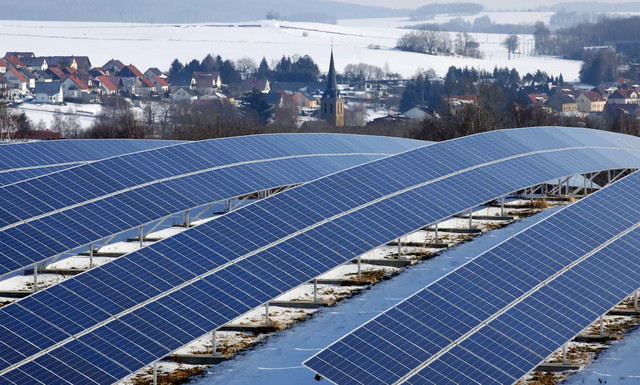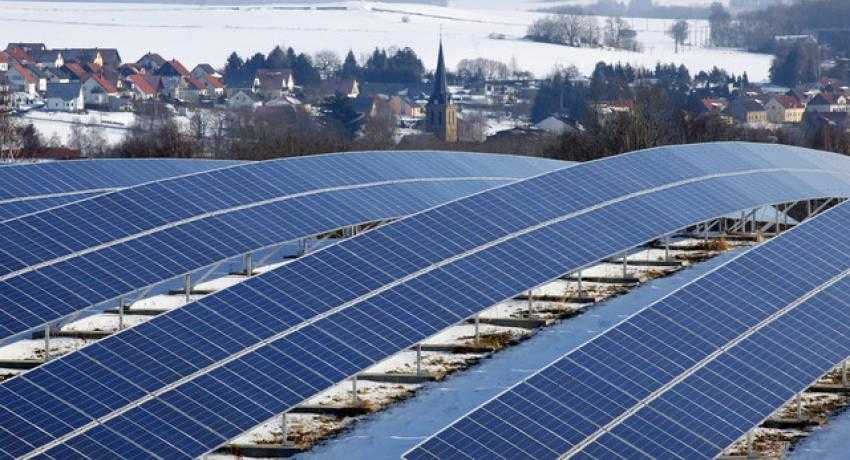Solar keeps European electric rates from surging even higher
 Germany’s record solar output has kept sky-high European energy prices from surging even higher.
Germany’s record solar output has kept sky-high European energy prices from surging even higher.
European day-ahead electricity prices in July remained 12 percent below prices from a year ago even though a massive heat wave swept the continent with temperatures 10 degrees Celsius higher than seasonal averages, according to a release from Platts, an energy and resource research and reporting firm.
The heat wave created tremendous electricity demand for air conditioning at the same time several coal and nuclear power plants failed or closed and there was a dip in hydropower production.
That increase in demand and reduction in supply caused day-ahead power prices in Europe to pop up almost 20 percent from 33.5 euros per megawatt hour to 40.13 euros, according to the release.
“West European electricity demand remains well down on the pre-credit crunch levels of 2008, with use continuing to decline in the U.K., Germany, Spain and Italy,” according to the release.
The reduction in demand results partly from increased awareness about and investment in energy conservation technology and continuing growth in renewable energy investment in those countries. All of the European countries named have made significant investments in renewable energy, especially solar, over the last five years. Germany, Spain and Italy have even been recognized as solar industry leaders for their feed-in-tariffs and aggressive solar power incentive programs.
Germany is the reining global leader in solar energy production, despite short winter days and notoriously gloomy skies.
“The June average (electricity demand) had been unusually low due to Germany's record solar output flooding a system already awash with hydro and wind power,” according to the release.
Germany set a record for solar power generation in June, producing 23.9 gigawatts of solar electric power.
SMA Solar Technology reported in July that Germany’s solar electric output climbed from an already high 22.4 gigawatts in June to 23.9 gigawatts on July 7.
Despite waning incentives, Germany’s solar investment continues to grow. The country installed 33.5 gigawatts of solar photovoltaic panels in the first half of 2013 alone. Germany has recently developed an incentive program for battery and other electricity storage innovations and technologies designed to stabilize a grid with a growing share of power coming from more intermittent sources. The incentive program, structured similarly to those solar programs that kickstarted the global solar industry, are expected to lead innovation in energy storage markets.




